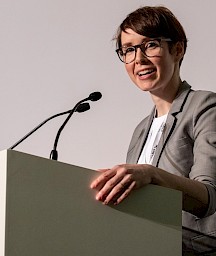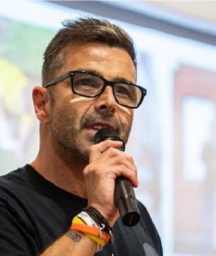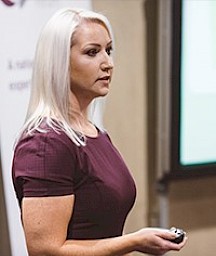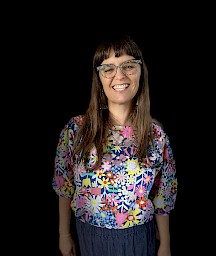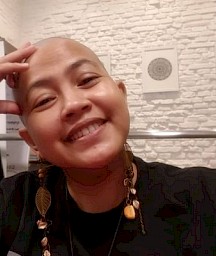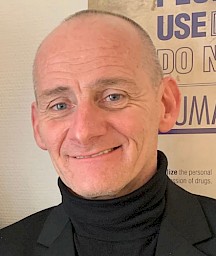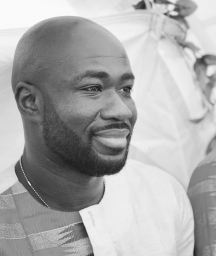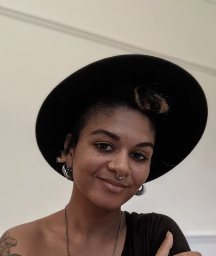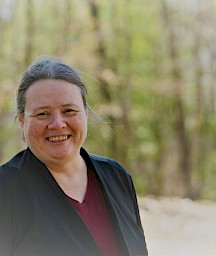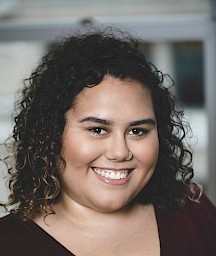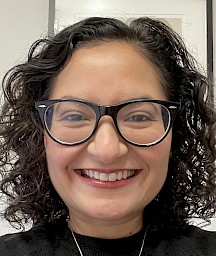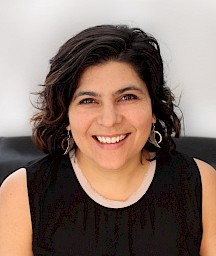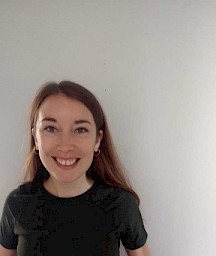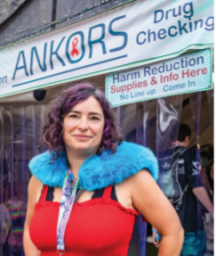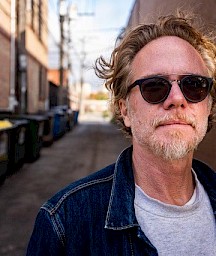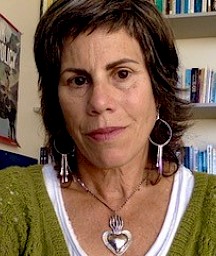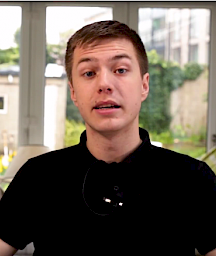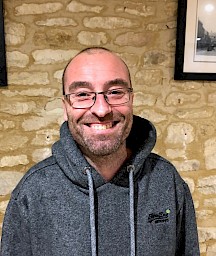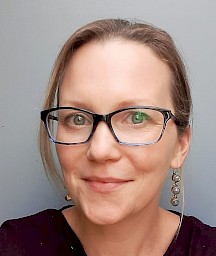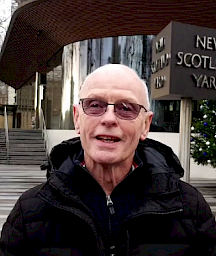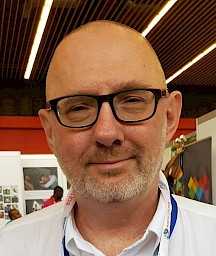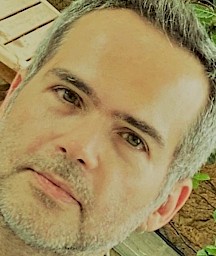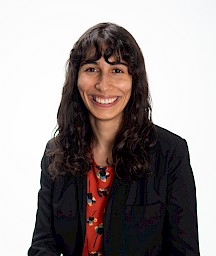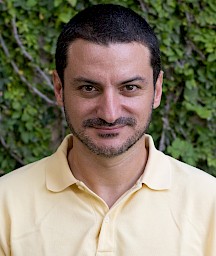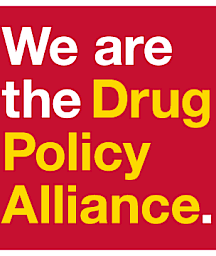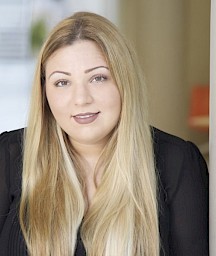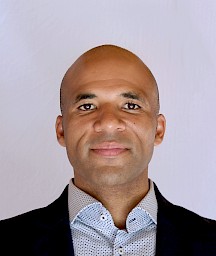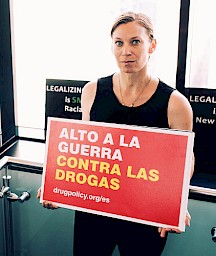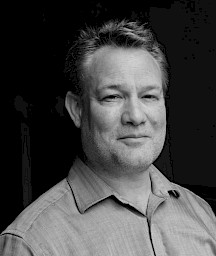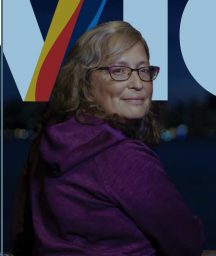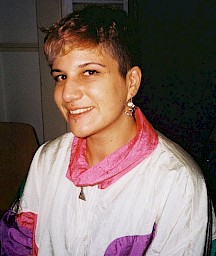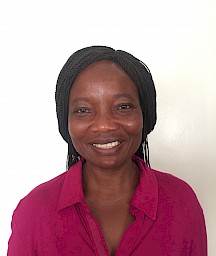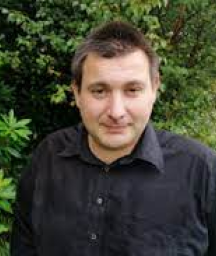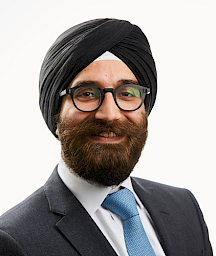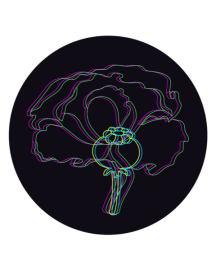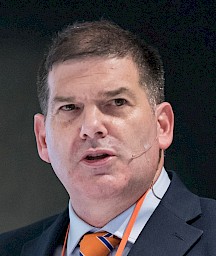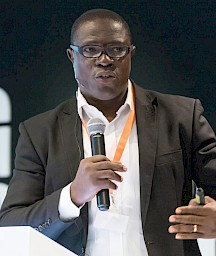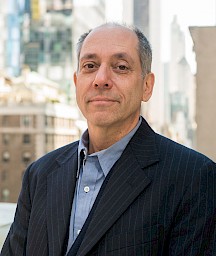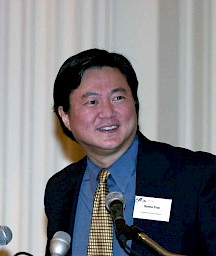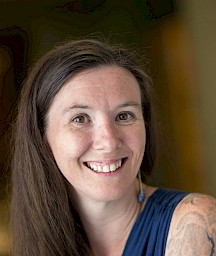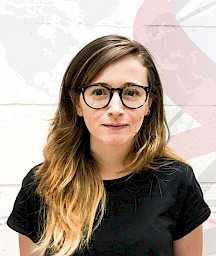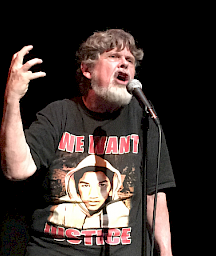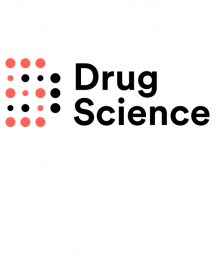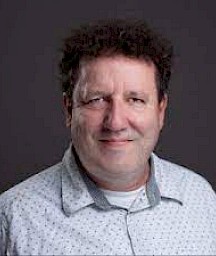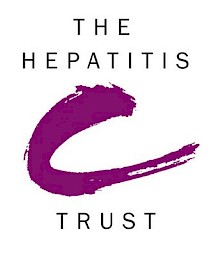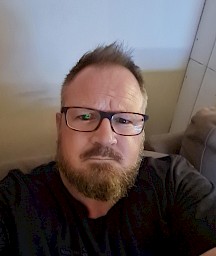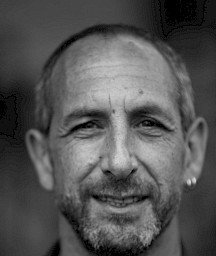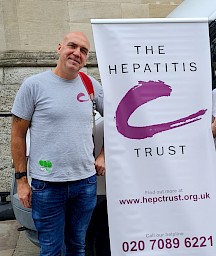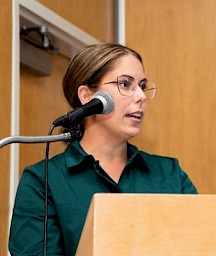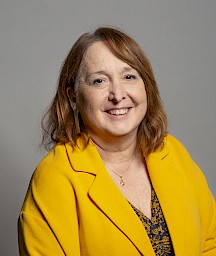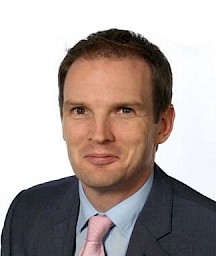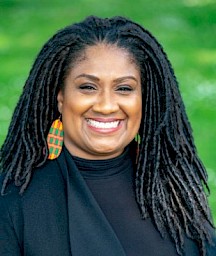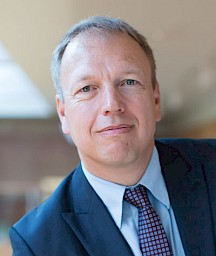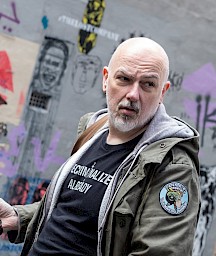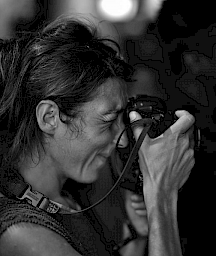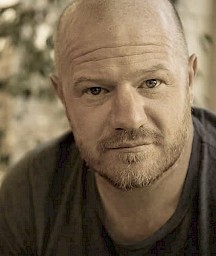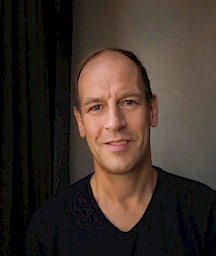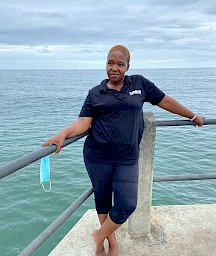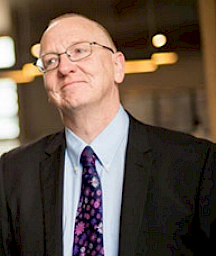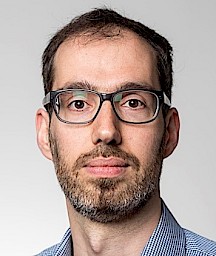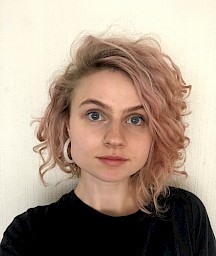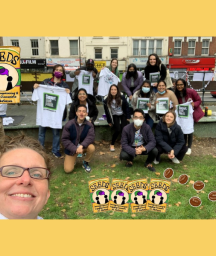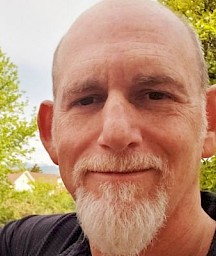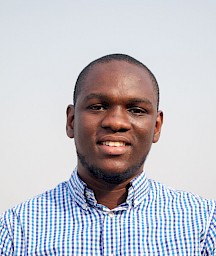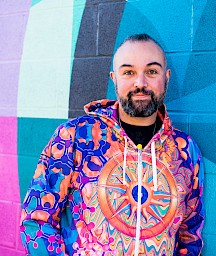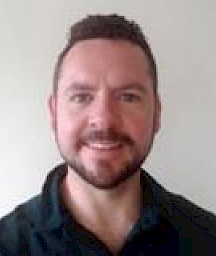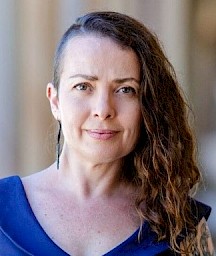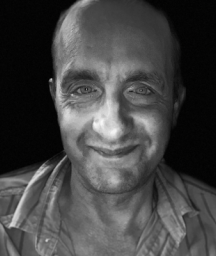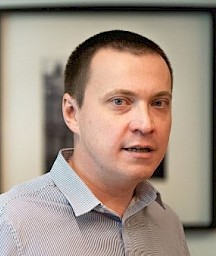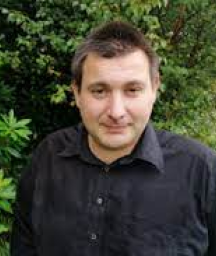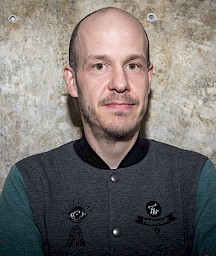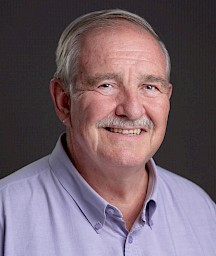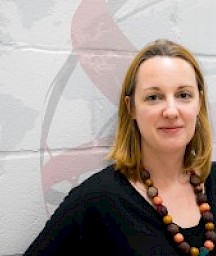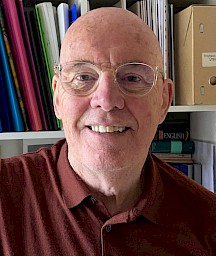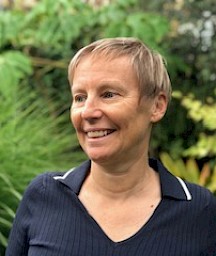Constellations Opening, featuring Q&A with Sir Elton John and David Furnish
To end AIDS by 2030, we cannot leave people who use drugs behind. Yet around the world, people who use drugs are criminalised and denied access to lifesaving services.
Join Sir Elton John and David Furnish from the Elton John AIDS Foundation for a short chat, as they discuss what harm reduction means to them, why governments must do more to fund the response and why we have to end the damaging war on drugs.
This interview will form part of the opening session of Constellations, hosted by Harm Reduction International's Executive Director, Naomi Burke-Shyne.
С русскими субтитрами
Con subtítulos en español
Mario Vargas Llosa in Conversation with Lisa Sanchez
Join Mario Vargas Llosa and Lisa Sanchez for a discussion on resistance movements, literature and drug control policy. Drawing on Mr Vargas Llosa’s decades of writing on power and resistance, and Ms Sanchez’s ground-breaking work to challenge the disproportionate impact of the war on drugs in Mexico and Latin America, this discussion will interrogate the use of drug policy by states as a mechanism of social control.
Session duration: 60 minutes
Session in Spanish, captioned in English
С русскими субтитрами
Sesión en español
Yoga with Welby
Join Welby for a live Yoga session on Wellbeing Wednesday. The focus of this session will be around knowing and feeling everything we do - even something as simple as lifting our hands up.
Video for this class is not required; Welby will do the movements while explaining what your muscles are doing and how they should feel.
Session duration: 60 minutes
Staying Alive: Naloxone Action!
We hear from dynamic peer-led networks about getting naloxone into the right hands, and getting the message to the public through advertising campaigns.
This session is co-hosted by Drink and Drugs News.
Session duration: 90 minutes
View 'Someone's Daughter, Someone's Son' (Naloxone Advocacy Film) here.
View Naloxone Public Awareness Campaign here and images below.
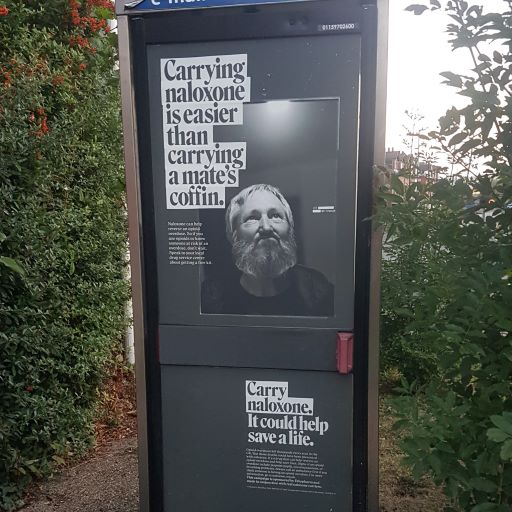
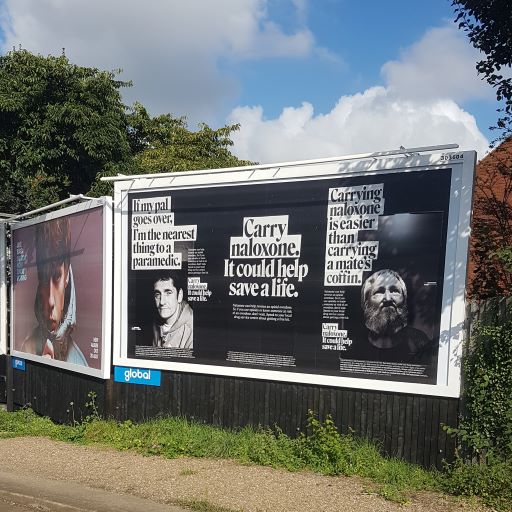
Wellness for Warriors
Join mindfulness expert, Susie Hopkins, as she guides you on a relaxing full body scan. She will start by dispelling some myths about mindfulness and explain how to get the most out of this practice.
A great opportunity to nurture your soul while learning skills for maintaining your own wellness as you fight for the wellbeing of others.
It's preferable to have somewhere comfortable to lie down, but it’s also possible to do this at your desk with your headphones in.
Please take this time for you.
Session duration: 90 minutes
Mandala: A Journey to Healing
Mandala means circle. It holds symbolic and meditative meanings and is used in Buddhism and Hinduism as a meditative tool and spiritual exercise. In modern days, mandala consists of a diagram, chart, or geometric pattern that represents the cosmos metaphysically or symbolically.
Ayu started her journey with mandala when she was pregnant with her second child, Sir Miguel. The impulse to start drawing layers and repetitive patterns came suddenly one day, and it helped her feel good and deal with the terrible mood she had while in pregnancy. In her words, “mandala helped me to connect with my unborn baby.” Sadly, Sir Miguel passed away 40 hours after being born due to trouble breathing. Months later, after battling with depression, Ayu started drawing mandala again. For her, mandala helps her to fight her anxiety, fear and the anger of loss.
On this session, Ayu will talk through her journey with mandala, and what it means to her. She will also share the basic technique to draw a mandala. You don’t need to be able to draw, nor to have all the fancy equipment to join this session. Just a willingness to learn, listen, and practice is enough. Oh, and a paper and a pencil (and an eraser, if you want to come prepared).
Session duration: 60 minutes
Introducing the Global Drug Policy Index
Over the past 18 months, the “Harm Reduction Consortium” has been developing the world’s first ‘composite index’ that scores and ranks national drug policies and their implementation. Examining five different dimensions (extreme responses, proportionality, harm reduction, access to controlled medicines, and development) – initially for 30 countries around the world – the Index can be a valuable resource to support your work. In this session, join the Consortium and some of our national partners to learn about the first Index results, what they tell us, and what comes next.
Session duration: 90 minutes
С русскими субтитрами
Con subtítulos en español
Ash Sarkar in Conversation with Kojo Koram
A conversation examining the racial justice aspects of drug policy reform which will also look at how ideas of race have historically interwoven with assumptions about pleasure, desire and the carnivalesque to inform our assumptions about the harms of drugs.
Session duration: 60 minutes
Healing Justice: A Future of Psychedelics that Prioritises Indigenous Communities and People of Colour
As psychedelics become more prominent in mainstream discourse, how can we ensure that we work towards psychedelics justice? How can we maintain Indigenous sovereignty over traditional drugs like peyote and ayahuasca and ensure that our movements to liberate psychedelics from prohibition incorporate a healing vision of justice?
Session duration: 90 minutes
С русскими субтитрами
Con subtítulos en español
Illegal Smile: The Political Economy of Drug-Induced Pleasure
San Francisco-based poet Ed Bowers once said that “one of the reasons people do drugs is because they feel better when they use them, and they don’t feel as good when they don’t.” This roundtable begins with this very simple yet profoundly complex assertion: people most often use drugs to feel good, to experience pleasure, to enjoy. Every instance of psychoactive drug use can be read as a “critique of existing arrangements,” an attempt at changing one’s current state of embodied consciousness in relation to the external world. In spite of, or maybe because of, pleasure’s centrality in the motivation for drug use, nearly all relevant discourses and their constituent institutions have ignored, denied, suppressed, or outright denounced the use of drugs for pleasure.
In all realms – politics and policy, economics, religion, education, and even harm reduction itself – pleasure has been minimized and sidelined, forsaken and buried in an effort to advance other causes, such as prohibition, morbidity and mortality reduction, moral probity, social hygiene, and fiscal productivity. Nevertheless, people continue pursuing pleasure through drug use, as they always have and always will, despite the willful fostering of an anemic array of discourses around it.
In this roundtable, we disinter pleasure and place it prominently in the center of a dynamic conversation about how and why humans use drugs. Participants will discuss with each other and the audience their respective concerns and interests regarding the place of drug-induced pleasure in the various discourses that shape our collective understanding of drug use.
Session duration: 90 minutes
MAPS Psychedelic Harm Reduction & Peer Support
MAPS has been providing psychedelic peer support services at festivals and events for over 20 years, and launched their flagship psychedelic harm reduction program, the Zendo Project, in 2012. Learn about the emergence and growth of the project from a small group of committed volunteers to a compassionate care and education model that has supported over 6,000 individuals, provided education and outreach to thousands, and developed into a worldwide community. Sara will discuss the importance of psychedelic peer support during challenging planetary times and MAPS’s vision to bring what has been cultivated at festivals and events out into the larger society at a time when more people are choosing to explore psychedelics. From local to global, how are psychedelic support services and education critical to the psychedelic movement and how can you get involved?
Session co-hosted by MAPS.
Session duration: 60 minutes
EZ Test: Just Say Know: How Drug Testing Can Support Harm Minimisation
Drug adulterants are changing, and the rise of synthetics means drug takers are more at risk from consuming an adulterant they’ve never encountered before. This panel discusses the pros and cons of drug testing in its various forms and how Government policy could be changed to support harm minimisation through testing.
This session is sponsored by EZ Test.
Session duration: 90 minutes
Chemsex Harm Reduction in Greater London: Another Perfect Storm
Join Bob Hodgson (Independent LGBT+ Advisory Group), Leila Reid (Hepatitis C Trust) and Patriic Gayle (Gay Men's Health Collective), in conversation about GHB chemsex related deaths, the need for harm reduction messaging, and the health and well-being needs of gay and bisexual men and other men who have sex with men.
Session duration: 60 minutes
Storytelling: Marios Atzemis
In Marios’ words: “When I started working in the harm reduction field, I was very influenced by the substance-free recovery narrative (at the time, I had just finished a stint in rehab). Working in the field and dealing with extremely vulnerable people and obsolete drug policies, inappropriate services for drug users and a hostile national health system, I realized the hard way the meaning and the value of harm reduction.
“The essential merit to meet people where they are at, and not where you or others want them to be; the harsh reality to advocate for drug users’ human rights in very hostile environments and how we use HIV as the Trojan Horse for defending and claiming these rights; all of that in the most difficult years of the current Greek history, the austerity years and now the pandemic – and all of this more or less ten years after the HIV outbreak in IDUs.”
Join Marios for this storytelling session plus Q&A, introduced by Nikos Dedes of Positive Voice.
Session duration: 30 minutes
Decolonising Drug Policy: American Exceptionalism and Why the Role of the US in Global Drug Policy Must Change
Through their media, policy, and rhetoric US drug policy has a tidal wave effect on the world. Yet most US based NGOs and US based drug policy reformers are silent on the broader impacts of the global drug war and often the policy choices that they make domestically have indelible impacts on global society. Most large US drug policy NGOs are also absent from international conversations happening at the UN and CND – sadly mimicking the US’ role in many other world social movements. As the drug war and authoritarianism intensifies it is crucial that the US reformers broaden their view and join the global fight to end the drug war, and ironically that starts in the US by critically interrogating how US drug policy media, policy campaigns, and rhetoric can shift to create a generative strategy for global reform.
This session is the fourth instalment of the Decolonising Drug Policy webinar series. In it, we will explore how the role of the US in global drug policy must change.
Session duration: 90 minutes
Release: Exploring Ethical Cannabis Policy
This panel brings together experts in cannabis reform from Canada, the USA (New York), Mexico, and the UK to discuss the different journeys to, and experiences of, cannabis regulation. The panel will discuss the sea change from talking about legalisation alone, to cannabis justice. Each speaker will discuss the importance of embedding social-equity principles into a regulatory framework, and will detail the progress made to date - and the challenges still faced - in their respective jurisdictions.
Session co-hosted by Release.
Session duration: 90 minutes
С русскими субтитрами
Con subtítulos en español
Harm Reduction Journal: Alcohol Harm Reduction: 2021 and Beyond
Alcohol is well known for contributing to substance use related harms and deaths yet alcohol harm reduction has received limited attention within the field of harm reduction. There are a range of alcohol harm reduction interventions that span regional and national policies as well as programs to reduce alcohol related harms. We will provide an overview of alcohol harm reduction strategies that include both policy and program interventions to provide a map of the field. In breakout sessions, participants will have an opportunity to actively engage with people with lived experience, and/or researchers to discuss specific alcohol harm reduction interventions including minimum pricing and other macro level policies, regional alcohol harm reduction policies and managed alcohol programs.
Session duration: 60 minutes
Harm Reduction Journal/Youth RISE/Filter: Research With and For Young People who Use Drugs
This session explores the lived experiences of young people who use drugs in academic writing as part of a Harm Reduction Journal/Youth RISE/Filter Special Series on “Young people, drugs and harm reduction” funded by the Robert Carr Fund. It discusses the overall series and three specific commentaries currently being written by members of the Advisory Board which focus on harm reduction issues related to engagement; unstable housing/unhoused people and issues affecting young people who use drugs in the Global South.
Session duration: 90 minutes
The Right Dose
Join DDN as they examine optimal dosing - the importance of getting the right medication at the right level.
This session is co-hosted by Drink and Drugs News.
Session duration: 60 minutes
Poppi: Drugs Museum Amsterdam - MDMA Regulation
Join Poppi Drugs Museum Amsterdam in their latest interactive exhibition – exploring the regulation of MDMA through three different models. Participate ‘live’ in an interactive, virtual environment to understand the implications of each model. In this session, you help to identify the most ideal pre-conditions to sell regulated MDMA – taking into account public acceptance and the latest insights provided by Transform UK (a guide to regulating stimulants). In this session, you contribute directly to find the best path forward to make regulated MDMA sales a reality.
Session duration: 60 minutes
Stimulants Speed Sessions: South Africa
Stimulants Speed Sessions: South Africa
A small number of jurisdictions have policy or practice that allow for the prescription of stimulants for people dependent on stimulants; Canada and Czechia took small steps to make medically prescribed stimulants available during the COVID-19 pandemic. Do these practices (as limited as they are) take us a step closer to safe supply, or are they a further extension of over the over-medicalisation of the response to drug use? Join experts from around the world in three speed sessions on prescribing for stimulants.
Session duration: 60 minutes
Carl Hart in Conversation with Naomi Burke-Shyne
Join Prof Carl L. Hart, Ziff Professor at Columbia University in a discussion with Naomi Burke-Shyne, Executive Director of Harm Reduction International, on drug control, impunity and justice. Drug control policy is used by governments all over the world to justify state violence. Buoyed by decades of propaganda on the ‘evils’ of drugs, drug policy remains an area which is designed to elude the rule of law and accountability. Carl and Naomi look at the pervasive, fear-based approaches which represent some of the most subtle, yet entrenched bastions of the war on drugs.
Session duration: 60 minutes
С русскими субтитрами
Con subtítulos en español
Daniel Wolfe: Health, Rights, and Wrongs - Reflections of a Harm Reduction Donor
Join Daniel Wolfe, former Director of OSF’s International Harm Reduction Development, in conversation with HRI's Ajeng Larasati, for his reflections on the movement over the past 15 years and the future funding landscape.
Session duration: 60 minutes
Fight For Your Right: Progress in the Movement Towards Just Drug Policy
The war on drugs, which is really a war on people, has seen people incarcerated for the cultivation, possession and use of drugs. The last few years has seen increased interest in decriminalising or legalising drugs. The new President of the USA even got in on the act, but unfortunately didn't follow up. Should the state control what we put in our bodies? Strategically should it be legalisation or decriminalisation? What would be the effect of reform on people who use drugs and what would it look like? These and other questions will be addressed in this session, chaired by Giada Girelli.
Session duration: 90 minutes
С русскими субтитрами
Con subtítulos en español
Poetry: Bright Stars, Dark Skies
Constellations presents: ‘Bright Stars, Dark Skies’, a powerful online poetry event that promises to challenge and transform perspectives around social justice, drug use and pleasure. RED MEDUSA, poet and curator of ‘Bright Stars, Dark Skies’ brings us a unique offering of six award winning, internationally recognised spoken word artists who will light up the virtual stage sharing witty, raw, honest masterpieces guaranteed to leave the audience with plenty to think about…
Drug Science: Improving and Accelerating Access of Medical Cannabis in the UK
It is clear that whilst there is great progress in access to medical cannabis being made worldwide, patients in the UK are being prevented from accessing potentially beneficial treatment, despite cannabis having been legally classified as a medicine since November 2018.
Since then, only a handful of patients have received a prescription on the NHS, despite lobby and patient groups suggesting the number of patients currently using illicit cannabis for therapeutic purposes in the UK to be in the region of 1.4 million people.
Drug Science believes that a balance must be struck between the access demands of patients based on unmet need, the risk of a burgeoning illicit market in the context of restricted access, and the collection of data to monitor safety.
Drug Science's approach focuses on (i) medical education, (ii) reasonable access to patients in need and patients seeking medical cannabis, along with (iii) the collection of robust real world data that may inform effectiveness and safety, along with QALY and patient reported outcomes.
Session co-hosted by Drug Science and chaired by David Badcock.
Session duration: 60 minutes
Positive About Being Positive: The Role of Peers in Hepatitis C Testing and Treatment
Join DDN and the Hepatitis C Trust to discuss how we can use our peer networks to help eliminate hep C.
This session is co-hosted by Drink and Drugs News.
Session duration: 60 minutes
Stimulants Speed Sessions: Canada
A small number of jurisdictions have policy or practice that allow for the prescription of stimulants for people dependent on stimulants; Canada and Czechia took small steps to make medically prescribed stimulants available during the COVID-19 pandemic. Do these practices (as limited as they are) take us a step closer to safe supply, or are they a further extension of over the over-medicalisation of the response to drug use? Join experts from around the world in three speed sessions on prescribing for stimulants.
Session duration: 60 minutes
Undoing Drugs: Maia Szalavitz on the History of Harm Reduction
Join acclaimed author Maia Szalavitz to discuss her new book, Undoing Drugs: The Untold Story of Harm Reduction and the Future of Addiction, with Drug Policy Alliance's Sheila P. Vakharia.
Session duration: 90 minutes
С русскими субтитрами
Con subtítulos en español
Moving the Needle: Drug Law Reform and Political Challenges in the UK
Join representatives from across the political spectrum who support the reform of UK drug laws in a structured discussion around the political challenges involved in changing our drug laws and what it will take to achieve reform. Hear about the positions of the major political parties and the voices for reform within them, followed by a discussion on how we can move forward and what we can all do to contribute to progress in the UK.
Session chaired by Alex Stevens.
Session duration: 90 minutes
Exposure: Photography as a Tool for Public Engagement
The impact of the image in helping change the public perception cannot be underestimated, over the years images of protest and political conflict have helped raise awareness of underrepresented groups and injustices. Images are used to educate in every meaning of the word.
"That's something I've always valued about art, its quiet potential and the challenge it presents to its creator and those that view it." – Craig Harvey
In this session, photographers from around the world - all involved in documenting drug policy and harm reduction - will discuss their work and a selection of their images that they feel have an impact on the wider public.
You can view each presenter's photos here: www.hri.global/constellations/photography
Session duration: 90 minutes
ASUK Network/HEDN: Human Enhancement Drugs - Foundations and Future
Due to the growing pressure to perform or to look good in various socio-cultural contexts, there is an increasing uptake of licit and illicit human enhancement drugs across the globe. There are a wide range of enhancement substances; examples are the use of the prescription drugs modafinil to promote wakefulness by surgeons to deal with high workloads, and the use of performance and image enhancing drugs for bodily enhancement. Although there is a large and growing body of research on the use and supply of non-prescribed anabolic-androgenic steroids, and its regulation, studies on other enhancement substances are still generally lagging behind.
The session will start with three short presentations, the first focused on exploring the historical context of enhancement drugs; the second presentation will discuss the need to develop new taxonomies and models; and the final presentation will reflect on developments in research on illicit weight-loss drug use. This will be followed with three Q&A with people who use illicit enhancement drugs in relation to psychedelics and micro-dosing; sexual enhancers; and cognitive enhancers (pre-recorded). They will answer questions regarding the pleasures/benefits of using these substances; concerns; and what interventions would be helpful. We will end with a panel with the people who interviewed the consumers and the weight-loss drug expert who will reflect on their research in their prospective fields.
Session duration: 90 minutes
DDN: More to Join Us than Divide Us
How the barriers between abstinence based recovery and harm reduction are being broken down and recovery groups are campaigning for harm reduction interventions.
This session is co-hosted by Drink and Drugs News.
Session duration: 90 minutes
SEEDS: Sowing Empowering and Engaging Discussions on Substances
SEEDS (Sowing Empowering and Engaging Discussions on Substances) is a new global grassroots education movement built on personal reflections, connecting with ideas, respecting everyone's humanity and building policy reform through dialogue. SEEDS was launched by a collective of Queen Mary, University of London students and alumni in Spring 2021. Their hope is that they can use social media as a platform to plant seeds for critical conversations that help us reflect on and think about how we plant the roots for social justice in drug policy. In 2021 This project launched 50 videos in 50 days from May 9-June 26 to commemorate the 50th anniversary of the Misuse of Drugs Act. The aim was to “seed” conversations with topics to help others access information and insights that advance our conversations about drug policy and harm reduction specifically, and health policy, social and racial justice broadly. The SEEDS project culminated in a physical day of action in Altab Ali Park in London alignment with the Support Don’t Punish Day of Action on June 26th 2021. Students were provided naloxone training, engaged with the public and met people in the area that provide and use these important local services. An online, global campaign over 50 days also became a face to face experience in their local community in alliance with a global campaign. This pivot between local and global is key in global health education.
In this workshop, you will hear from students and staff involved in this project and be invited, through a series of activities, to reflect on creative uses of social media and teaching practices.
How, where and with whom, can we nourish critical, calm, and nuanced conversations around drug policy reform?
Session duration: 90 minutes
Screening and Panel Discussion: "Ayahku, Dr G": Advocating for Cannabis Reform in Asia
Join us for a screening of Ayahku, Dr. G, followed by a discussion among medical cannabis and human rights advocates from different regions on their personal experiences in advocating for drugs – including cannabis – decriminalization, as well as sharing ideas and inspiration on how to move together collectively to destigmatize cannabis use via education. The session will be moderated by Jo Yee.
About the Film
Ayahku, Dr. G tells the unconventional journey of a former armed forces captain; 61 year-old Amiruddin Abdullah, and his venture into the business of medical marijuana in a country where the use of cannabis is widely condemned and punishable with death.
After finding relief in the use of marijuana to treat his chronic diseases, Amiruddin Abdullah decides to help other terminally ill patients suffering from epilepsy and leukaemia by providing them CBD infused confectionaries - aptly earning himself the name ‘Dr Ganja’ (or ‘Dr. G’) on various social media platforms. Unfortunately, when stories of his medical treatments reached authorities Dr. G was arrested on 36 charges of drug-related offences. He was denied bail and is now in detention, facing a capital drug trial.
Fighting for his innocence and release is his daughter; 33 year-old Siti Fairos, with the help of Malaysia’s opposition lawmaker Ramkarpal Singh and his legal team. Dr. G’s legal defence is a race against time, as he begins to succumb to his illness because of lack of adequate healthcare in prison.
Ayahku, Dr. G is a harrowing tale of survival and injustice, that aims to highlight the vicious cycle of abuse rooted in Malaysia’s outdated, punitive drug control policy.
About the Campaign #KAJIBUKANKEJI
#KajiBukanKeji (roughly translates to "study, not villianise") is a campaign that aims to destigmatize medical cannabis. The medicinal benefits of cannabis are increasingly recognised, with over 50 countries adopting medical cannabis programs. The United Nations Commission on Narcotic Drugs has also reclassified cannabis as a less dangerous drug, encouraging further research into the plant’s medicinal potential.
Malaysian law, however, does not differentiate between recreational and medical cannabis, and anyone caught with 200g or more of the drug is presumed to be trafficking — an offence punishable with death under Section 39(B) of the Dangerous Drugs Act 1952. This is a disproportionate punishment for an offence that does not constitute the “most serious crimes” under international law.
Session duration: 90 minutes
#ASKMEANYTHING - Ethan Nadelmann
Join harm reduction superstar, Ethan Nadelmann, as he answers questions submitted by you. Asking the questions will be Colleen Daniels, Deputy Director at Harm Reduction International. Submit your question by emailing conference [@] hri [.] global before 19 November.
Session duration: 60 minutes
Last Night a DJ Saved My Life: A Meaningful Discussion on the Role of Drugs and Pleasure on the Dancefloor
Drugs have long played a role in the world of music and dance. For this reason, a harm reduction approach to nightlife and music festivals has historically focused on effective practices such as drug checking, to keep people safe while they have fun. But focusing on risk and harm ignores the reason most people take drugs at concerts and on dancefloors -- to have fun. How can we have a meaningful discussion on incorporating the enhancing of pleasure on the dancefloor into our understanding of harm reduction, without ignoring the risks associated with taking drugs in this setting?
Session duration: 75 minutes
С русскими субтитрами
Con subtítulos en español
Harm Reduction Journal: Anabolic Androgenic Steroids and the Challenges for Harm Reduction
The use of anabolic androgenic steroids (AAS) and associated drugs is by no means a new phenomenon, however, the last 30 years has seen the diffusion of AAS use from elite sport and competitive bodybuilding arena to the recreational gym environment. In addition to the identification of significant levels of AAS on a global scale, we have growing evidence of the wide-ranging potential harms associated with these drugs. While many countries now recognise AAS use an emerging public health issue, policy responses have been mixed, in many instances relying on legislation in an attempt to deter use.
This session will explore some of the emerging evidence in relation to AAS, and explore what we really know about developing effective harm reduction interventions. Short presentations will provide overviews of several in-depth studies of AAS use together with an overview of the evidence base in relation to AAS and the reduction of drug related harms. In addition to the panel of researchers, we are delighted to have Dave Crosland who will draw on his vast experience of AAS use in conversation with researcher Dr Mair Underwood.
Dave will join the researchers in a panel to answer questions and discuss the key public health issues associated with AAS use and the need for an appropriate harm reduction response.
Session duration: 90 minutes
Workshop: Use of Digital Tools to Identify Emerging Drug Trends and Deliver Harm Reduction Services
The evolving digital society generates new methods and settings for harm reduction and the user voice. It is a many-faceted hybrid of platforms, devices, interfaces and data-driven infrastructures that is intertwined into everyday life. The digital provides new capacities for harm reduction services which we want to recognise, and also new threats in the form of surveillance and algorithm-led decision making which can reinforce existing biases, and is the vector and venue for new types of drug and drug use. As part of the launch of a new section of the Harm Reduction Journal, this workshop examines these issues in terms of:
- Provision of digital and online outreach services
- Affordances and risks of digital technology for harm reduction
- Services delivered through apps, bots and the other means of online interactions with users’ mobile internet
Workshop duration: 60 minutes
Stimulants Speed Sessions: Czechia
A small number of jurisdictions have policy or practice that allow for the prescription of stimulants for people dependent on stimulants; Canada and Czechia took small steps to make medically prescribed stimulants available during the COVID-19 pandemic. Do these practices (as limited as they are) take us a step closer to safe supply, or are they a further extension of over the over-medicalisation of the response to drug use? Join experts from around the world in three speed sessions on prescribing for stimulants.
Session duration: 60 minutes
Drug Science: David Nutt on Medical Psychedelics
Join Professor David Nutt as he discusses the history, law, science, research and future of medical psychedelics.
Session co-hosted by Drug Science.
Session duration: 60 minutes
С русскими субтитрами
Con subtítulos en español
In My Life: Reflecting on Harm Reduction International at 25
On the occasion of HRI's 25th birthday, join members of HRI's board of trustees past and present as they talk about harm reduction then and now and what drove them to sit on the board of Harm Reduction International. The discussion will be moderated by Catherine Cook, HRI's Sustainable Financing Lead and longest-serving member of staff.
Session duration: 60 minutes
Constellations Closing
Join us as we reflect on the past nine days of Constellations.



